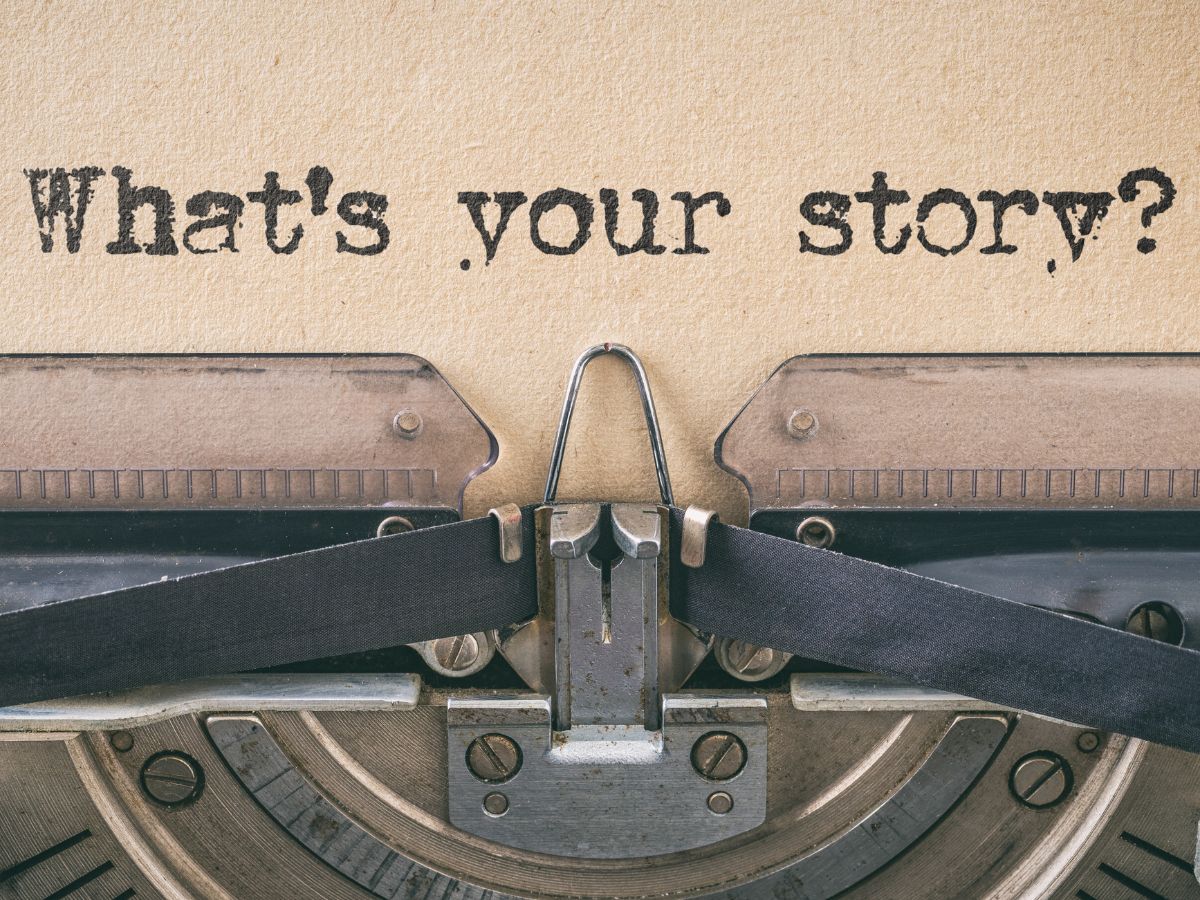
Life's Unscripted Narratives: How storytelling shapes everyday life
“The universe is made of stories, not of atoms.” — Muriel Rukeyser
In life, we often find ourselves lost in a sea of experiences – moments of joy, sorrow, triumph, and struggle. Amid this whirlwind, storytelling rises as a powerful force, a means to give voice to our innermost thoughts and emotions. Stories are not just words; they are the essence of what it means to be human. They help us make sense of our lives and connect with others on a deep, emotional level.
At its heart, storytelling is an exploration of our existence. Each of us is a storyteller, weaving narratives from the threads of our experiences. These stories shape our identities and reflect our beliefs, values, and aspirations. When we share our stories, we invite others into our world, offering them a glimpse into our struggles and victories. It is in this sharing that we create bonds, understand different perspectives, and recognize the shared threads of our humanity.
As we journey through life, we discover that every moment has the potential to become a story. The mundane and the extraordinary, the joyful and the painful, all hold significance when framed through the lens of narrative. By embracing our stories, we find meaning in our experiences, helping us navigate the complexities of life with greater clarity and purpose.
The Philosophical Underpinnings of Storytelling
At its core, storytelling serves as a vehicle for understanding the human condition. The ancient Greeks recognized this power, as the philosopher Aristotle asserted that storytelling fosters catharsis – a purging of emotions through the art of tragedy. Through stories, we confront our fears, joys, and complexities, allowing us to explore the full spectrum of human experience. Each narrative weaves together our collective consciousness, illuminating the truths we often struggle to articulate.
In a world that frequently feels fragmented, stories become bridges, linking disparate experiences and perspectives. They remind us that we are part of a greater whole, bound by our shared humanity. As we share our stories, we engage in a dialogue that transcends cultural and temporal boundaries. This exchange invites us to find meaning in the chaos of existence, offering clarity in our tumultuous lives. The act of storytelling creates a tapestry of experiences that unites us, reminding us that, despite our differences, we all grapple with the same fundamental questions of life, love, loss, and belonging. In embracing storytelling, we create a space for collective reflection and understanding, allowing us to navigate the complexities of our shared human journey.
The Power of Connection Through Storytelling
Human beings are inherently social creatures, and storytelling is a fundamental way we connect with one another. When we share our narratives, we extend an invitation for empathy and understanding. Imagine the warmth of gathering with friends and family, where personal tales flow like a shared meal. Each story told is a thread that binds us together, transcending our individual experiences and allowing us to recognize the shared emotions that reside within us all.
Storytelling fosters a sense of belonging, enabling us to form deeper connections with those around us. It is in these intimate exchanges that we find solace, recognizing that our struggles and triumphs are not solitary endeavors but part of a collective journey. When we listen to others’ stories, we acknowledge their pain, joy, and complexity, cultivating an environment of compassion and empathy. Through these narratives, we not only understand others better but also gain insight into our own experiences, as each story serves as a mirror reflecting our truths. In this way, storytelling becomes a communal act that nurtures our relationships, strengthens our communities, and ultimately enriches our lives.
Identity and the Narrative Self
The stories we tell about ourselves shape our identities and influence how we navigate the world. Philosopher Paul Ricoeur introduced the concept of the “narrative self,” emphasizing that our identities are constructed through the stories we tell. Each experience becomes a chapter in the larger narrative of our lives, and through this lens, we can understand our motivations, desires, and aspirations.
As we curate our narratives, we reclaim agency over our identities, transforming past experiences – both painful and joyous – into tools for growth and understanding. The act of storytelling allows us to explore the fluidity of our identities, adapting and reshaping them in response to new insights and experiences. By sharing our journeys of resilience and transformation, we not only uplift ourselves but also inspire others to embrace their narratives, fostering a sense of hope and possibility. In this sense, storytelling is not just about recounting events; it is an active process of self-discovery and reinvention.
Through the narratives we construct, we can define who we are and who we aspire to be, creating a dynamic interplay between our past, present, and future.
The Role of Storytelling in Professional Environments
In the realm of business and leadership, storytelling emerges as a powerful tool that transcends mere data and statistics. Great leaders understand that numbers alone do not inspire; it is the stories behind those figures that breathe life into a vision. A compelling narrative can galvanize a team, motivate individuals, and create a sense of purpose that drives collective action.
Marketing, too, thrives on the art of storytelling. Brands that weave narratives into their messaging forge emotional connections with consumers, transforming products into integral parts of a larger story. In an era saturated with information, it is the stories that resonate – those that speak to our hearts and align with our values – that leave an indelible mark on our consciousness. These narratives help us understand not just what a company does but why it matters. They foster loyalty and create communities around shared values and missions, transforming consumers into advocates. In professional environments, storytelling becomes a crucial skill that enhances communication, builds relationships, and inspires innovation, reminding us that behind every business is a human story waiting to be told.
Everyday Storytelling Practices
Storytelling is woven into the fabric of our daily lives, manifesting in the simplest of interactions. From casual conversations shared over coffee to the stories we post on social media, each moment holds the potential for narrative. These exchanges allow us to express our unique experiences and perspectives, adding richness to our connections.
In this digital age, the rise of platforms for personal storytelling has democratized the art form. Individuals now have the power to share their narratives with the world, inviting others to participate in their journeys. This inclusivity highlights the importance of diverse voices, reminding us that everyone has a story worth telling. By embracing these narratives, we find commonality in our differences and create a tapestry of shared human experience. Each story shared adds a new layer to our understanding of one another, fostering a culture of openness and vulnerability. In everyday storytelling, we discover that our lives are interwoven with those of others, reinforcing the idea that our shared humanity is what truly connects us.
The Therapeutic Aspects of Storytelling
Beyond its social and professional applications, storytelling possesses profound therapeutic qualities. In moments of struggle, articulating our experiences through narratives allows us to process complex emotions and gain clarity. The act of telling our stories can be a form of catharsis, helping us confront our fears and uncertainties while providing a sense of closure.
Listening plays an equally vital role in this exchange; it fosters a culture of empathy and understanding. When we lend an ear to others’ stories, we acknowledge their pain and joy, creating a space for healing and growth. This reciprocal exchange of storytelling and listening becomes a communal act of resilience, binding us together in our shared humanity. Through storytelling, we not only navigate our own experiences but also contribute to the healing journeys of others, fostering a sense of connection and support. In this way, storytelling becomes a sanctuary where we can explore our vulnerabilities, celebrate our triumphs, and ultimately find solace in the shared narrative of life.


